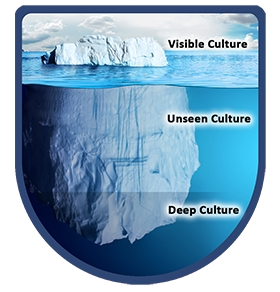How Open Educational Resources Give Faculty and Students What They Want
Published by: WCET | 3/29/2017
Tags: Credentials, Game-based/Gamification, Open Educational Resources, Student Success, Textbooks
Published by: WCET | 3/29/2017
Tags: Credentials, Game-based/Gamification, Open Educational Resources, Student Success, Textbooks
Undergraduate costs are on the rise and student loan debt is a huge issue impacting today’s society. How can we, as higher education professionals, help limit the costs for students while also ensuring and promoting their success? This week we welcome Sandy King, Professor of Communications with the Anne Arundel Community College to discuss her suggested solution: Open Educational Resources (OERs). Sandy gives us some background information on OERs and also explains her personal experiences with incorporating OER into her teaching. The resources she provides on OER are outstanding, and I was so excited to hear about the gaming elements she had included in her course!
Thank you Sandy for this educational and inspirational post!
~Lindsey
In June of 2014, I attended Maryland OER (Open Educational Resources) Day, and I heard some statistics that has changed the way I teach. In their presentation, Una Daley and James Glapa-Grossklag shared the following:
Although these statistics are sobering, there is a solution: OERs.
The U.S Department of Education defines OERs as:
“teaching, learning, and research resources that reside in the public domain or have been released under an intellectual property license that permits their free use or repurposing by others.”
OERs include full textbooks, course materials, modules/lessons, videos, images, animations, teaching objects, tests, software, and other ancillaries used for instruction. OERs are digital, which makes them easy to use in eLearning courses. They are available to redistribute and reuse, and most often, can be revised or remixed. A key appeal of OERs is they are usually free or available at very low cost.
The Community College Consortium for Open Resources: http://oerconsortium.org/
The Community College Consortium for Open Resources Finding Resources Page: http://oerconsortium.org/find-oer/
The Open Education Consortium: http://www.oeconsortium.org/
MIT Open CourseWare: https://ocw.mit.edu/courses/
Tufts Open CourseWare: http://ocw.tufts.edu/
Saylor Academy: http://www.saylor.org/
Open Stax: https://openstax.org/
While some faculty simply switch from a publisher textbook to an open text, I chose to build my intercultural communication from scratch using OERs, so that all the material for the course was found in the LMS, Canvas. This gave us some powerful advantages:
It also gave me the opportunity to theme each module so that I could incorporate some gaming elements, such as badges, to my course. Three of the badges – the Cultural Iceberg, the Dia de los Muertos or “Day of the Dead” Project, and Nonverbal Communication – are shown below.



Students earn a badge by receiving a 90% score or higher on an assignment, and a badge is available in every module of the course, so there are many opportunities for success. Badges are psychic or intrinsic rewards, which rely on the pure joy and satisfaction of achieving a goal, rather than basing motivation solely on the extrinsic reward, achievement for a grade.
Additionally, using OERs allowed me to add a storyline to the course. In each module, students assist Francisco, a recent immigrant to the U.S., to acclimate to a new culture. The students provide Francisco with advice and help as he makes his intercultural journey. By helping Francisco gain the knowledge and skills to be interculturally competent, students demonstrate that they, too, have learned the required knowledge and skills.
Incorporating OERs has been liberating for me. Now that I’m no longer dependent on publisher content, I can keep the course up-to-date and easily make revisions as needed. As more open resources become available, my intercultural course will continue to improve.

Sandy King
Professor of Communications
Anne Arundel Community College

Save
Save
1 reply on “How Open Educational Resources Give Faculty and Students What They Want”
Thanks for advocating for OER, Sandy! The Texas Senate Higher Ed Committee considered a bill today on OER — has been left pending in committee. For more info, see http://www.capitol.state.tx.us/BillLookup/History.aspx?LegSess=85R&Bill=SB810.